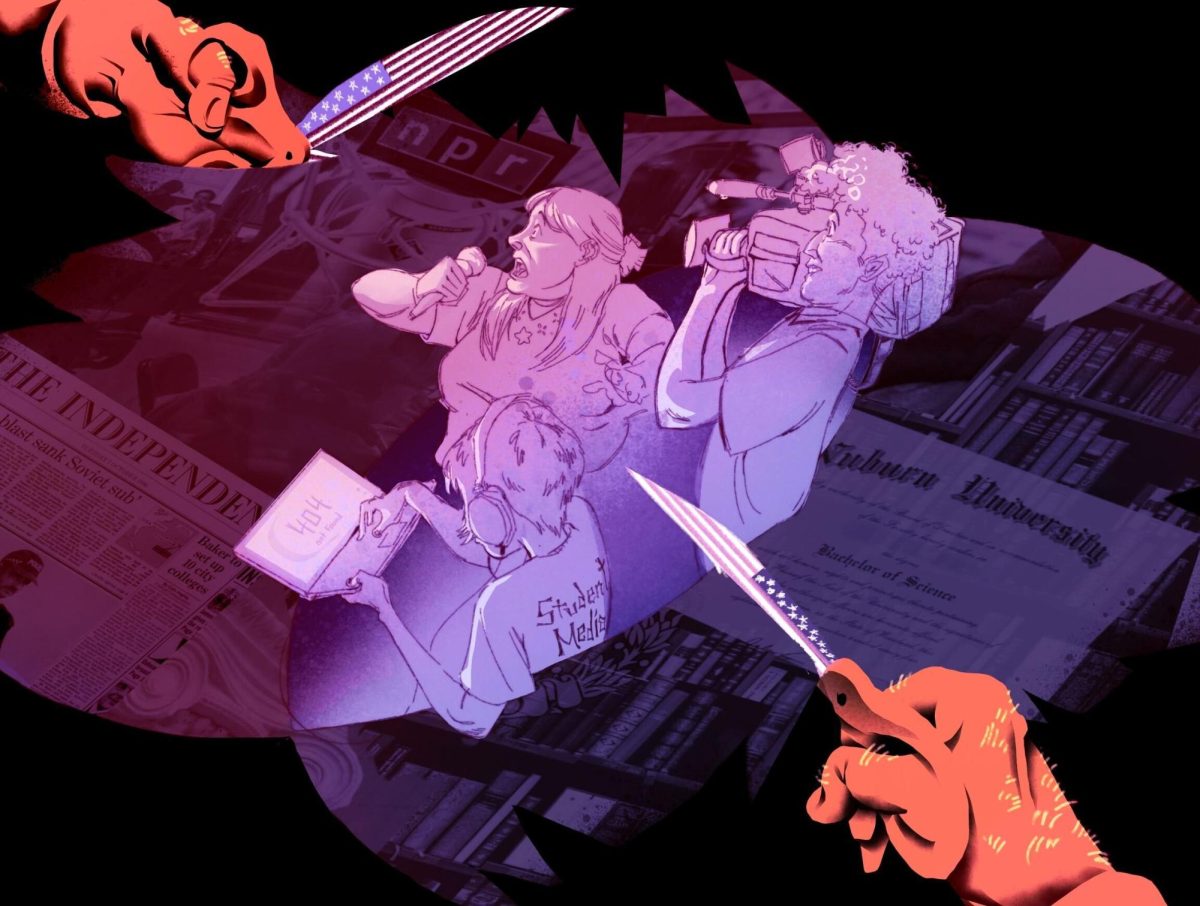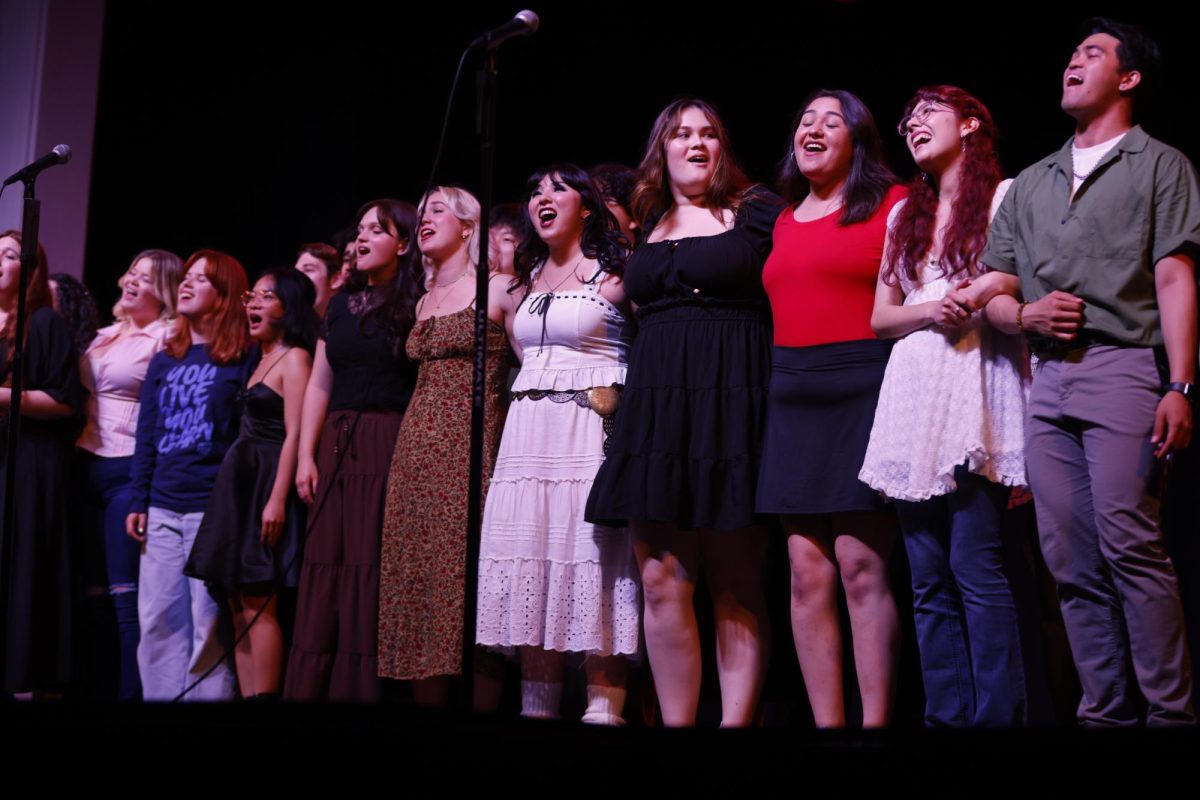Opinion: Listen Up Colleges; Hate Speech is Free Speech
Many people contribute freedom of speech to being the backbone of American rights. So why is it that colleges are trying to regulate it? Photo credit: Gerardo Chagolla
March 15, 2023
At one time in this nation’s past, discussions of inclusivity about LGBTQIA+ groups would have been called a “perversion” and subject to prosecution in a court of law. They would have likely been prohibited on FC and other college campuses.
If not for the First Amendment of the United States Constitution, protests, marches, and distribution of written material would have been prohibited on the basis of being “offensive” to those with opposing views. If not for the First Amendment, much of the progress toward acceptance and inclusiveness would not have occurred.
“Freedom of speech is a principal pillar of a free government: When this support is taken away, the constitution of a free society is dissolved and tyranny is erected on its ruins,” wrote Founding Father Benjamin Franklin in The Pennsylvania Gazette.
But does hate speech qualify under freedom of speech?
A hate speech task force has been created to deal with issues troubling students and staff of Fullerton College. Plans have been drawn up to counter the many outside groups who speak and hand out pamphlets in the free speech areas of the campus.
The current plan is to supply students who are fearful and feel targeted with “toolkits” of water, snacks, and T-shirts with supportive messages. They also will encourage students who feel threatened to migrate away from the “hate speech” areas to safe zones with quiet, meditation, and self-affirmation as well as countering with their own signage, urging kindness and inclusivity. They stressed that it was important for students to feel valued and wanted on this campus.
These measures were drawn up over the last few months at Associated Students committees, following a confrontation last Fall with such a speaker. On Nov. 22, 2022, A.S. President Chloe Serrano, spoke at the NOCCCD Board of Trustees for the many students who felt targeted by the anti-LGBTQIA+ and anti-Islamic statements made by speakers in the quad on Nov. 17, 2022. Serrano requested the Trustees to clarify the definition of hate speech and take action to stand with students targeted by the group.
Although using hate speech to target vulnerable groups of people is deplorable, the NOCCCD should tread carefully in instituting measures curtailing free speech.
Regulations on speech could end up costing Fullerton College in litigation fees similar to what happened at Clovis Community College. Since the United States Constitution is the highest law in the land, the First Amendment on freedom of speech must be upheld.
Erwin Chemerinsky, Dean of Law at UC Berkeley, in an op-ed for Vox, recognized that students at Berkeley, want to restrict hurtful speech towards underrepresented people by restricting free speech. He worries that, “students do not realize the degree to which free speech has been essential for the advancement of rights and equality.”
For example, in this nation’s past, college students protested against wars, voting rights, and freedom of clothing choices. At some high schools in the 1960s and earlier, teenage girls were mandated to wear girdles to conceal the “obscene” delineation line between the buttocks. Tattoos with images such as nudity or controversial messages had to be covered up.
When I was a ten-year-old, I was prevented from wearing a medallion embossed with the multiple-armed Indian goddess, Durga.
This was due to some people finding it offensive, according to my grade school principal. I objected to that, since it was part of my ensemble: a dress with a Nehru-collar, a then-popular 1960s style.
There was nothing wrong with me wearing my goddess medallion. In fact, my principal’s decision was in violation of the First Amendment in regards to freedom of speech and religion.
Even though Hinduism has never been a religion of mine, if people can wear Judeo-Christian symbols such as Stars of David or crosses, why not a depiction of an Indian goddess that I found beautiful? Push-back against censorship of people wanting free expression of dress or personal choices sometimes includes demands to lift societal restrictions and college campus policies.
However, too much regulation of speech on campus could impact those who engage in careless speech. This can occur with people who were raised in households whose members used racist, derogatory terms in casual ways.
Such a person may not feel true animosity towards these groups of people affected by racist terms. They are simply loose-lipped and unthinking of how their words and terms affect others or how it impacts their own public image.
First Amendment rights normally protect such free speech, and only cite “fighting words,” defamation, obscenity and substantial disruption, as noted by NOCCCD policy.
A report from CQ Researcher asked opinions of personnel and students from several universities. Emma Camp, a senior at the University of Virginia, said the learning environment she had expected at the university would have “championed intellectual diversity and rigorous disagreement,” but had instead been disappointed with a college experience that was “defined by strict ideological conformity.”
This “strict ideological conformity” held students, from all political persuasions, back from what they really thought. This, in turn, not only silenced student voices, but it silenced diversity and inclusivity, the main argument of people for free speech regulations.
The controversial groups and individuals who bring words and signage that offends students make the rounds of many campuses, every semester, with goals of getting as much attention as possible.
With placards sometimes 10 feet high, they cannot miss getting attention and a crowd surrounding them.
If students feel that ignoring them en masse would be too dangerous, then the solution discussed in the A.S. meetings seems to be the best after all: to meet words of hate and exclusivity with word-bouquets of love, acceptance and warm hugs to those they want to feel included and valued.
Fight hate with love.
The Hate Speech Task Force meets this Thursday, March 16, from noon-1 p.m. in room 222B on the second floor of the 200 building.
This article has been updated to include more accurate language.


















